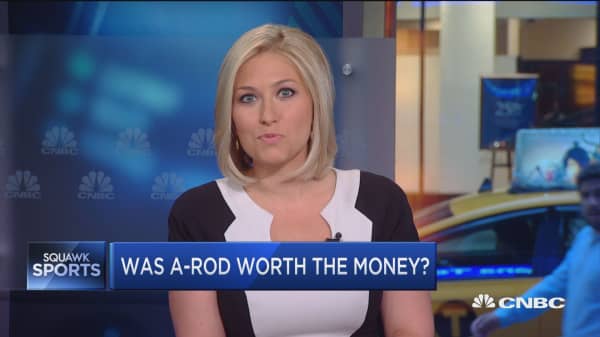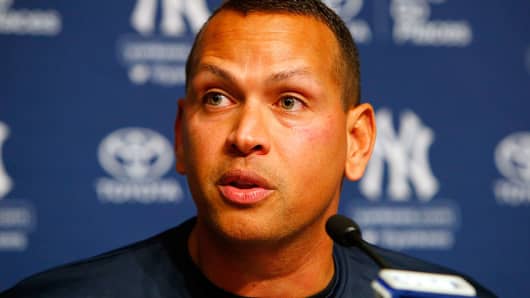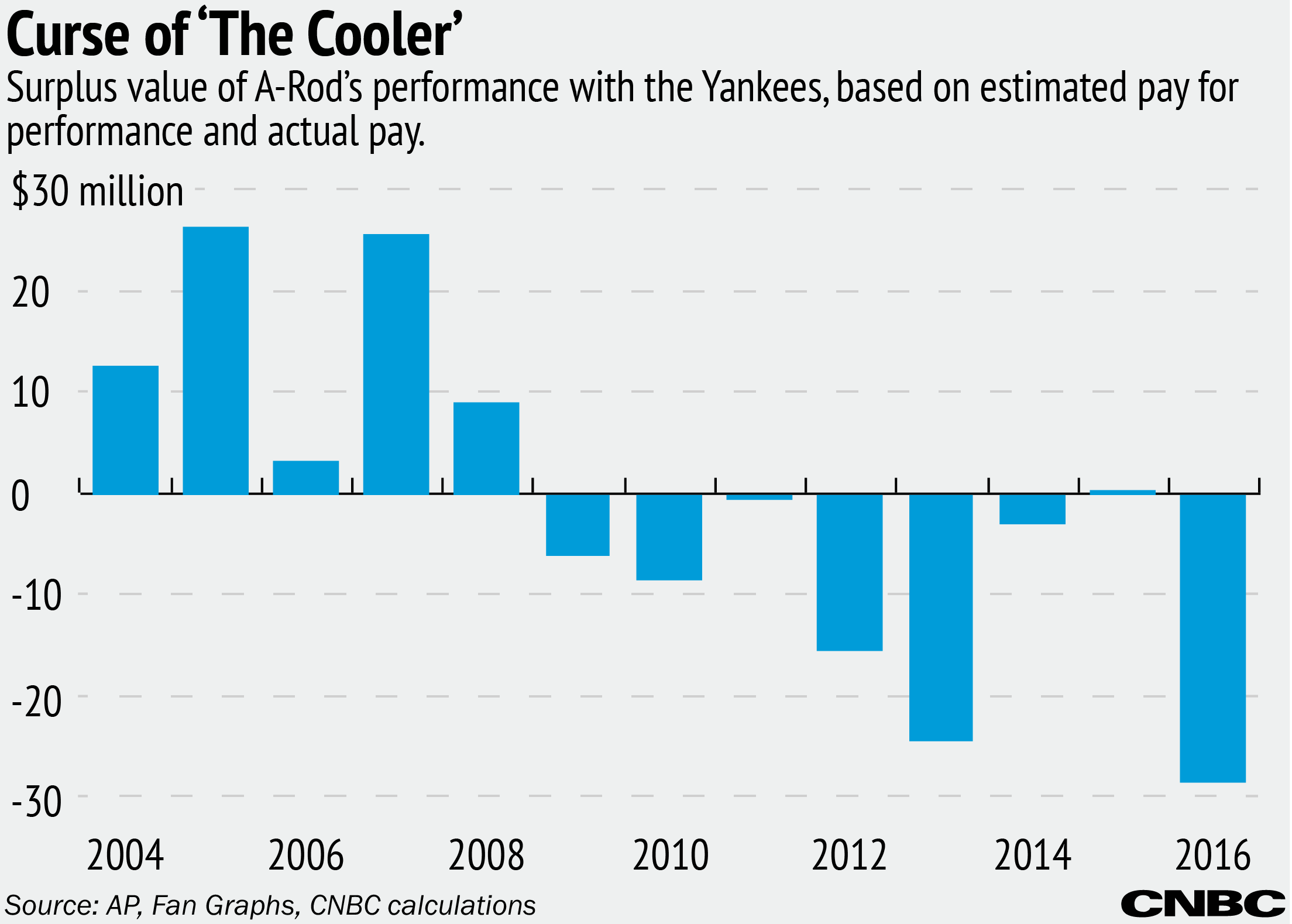Alex Rodriguez plays his last game in pinstripes Friday, but the New York Yankees might have been better off not signing him in the first place.
There's no question that A-Rod has had a remarkable career as a ballplayer. He played in 14 All-Star games and won the American League MVP award three times. His 696 career home runs place him fourth on the list of career leaders. He also signed the then-biggest contract in sports history with the Yankees.
But his career has also been marred by controversy over the use of performance-enhancing drugs, evidenced by popular plays on his nickname such as A-Fraud and A-Roid.
To some players, he's been known as "The Cooler" for his seeming ability to come to a team on a hot winning streak and cool it off. (He started with the Yankees in 2004, after the Bronx Bombers had gone to the World Series six times in the previous 10 years and won it four times. They didn't win the pennant again until 2009.)
Then there's the substance issue. In 2013, then-Major League Baseball Commissioner Bud Selig suspended A-Rod and 13 other players for violations of the league's drug agreement and labor contract in connection with the Biogenesis investigation. Rodriguez ended up sitting out all of the 2014 season. He forfeited 162/183rds of his salary and took home $2.9 million, according to the Associated Press.






